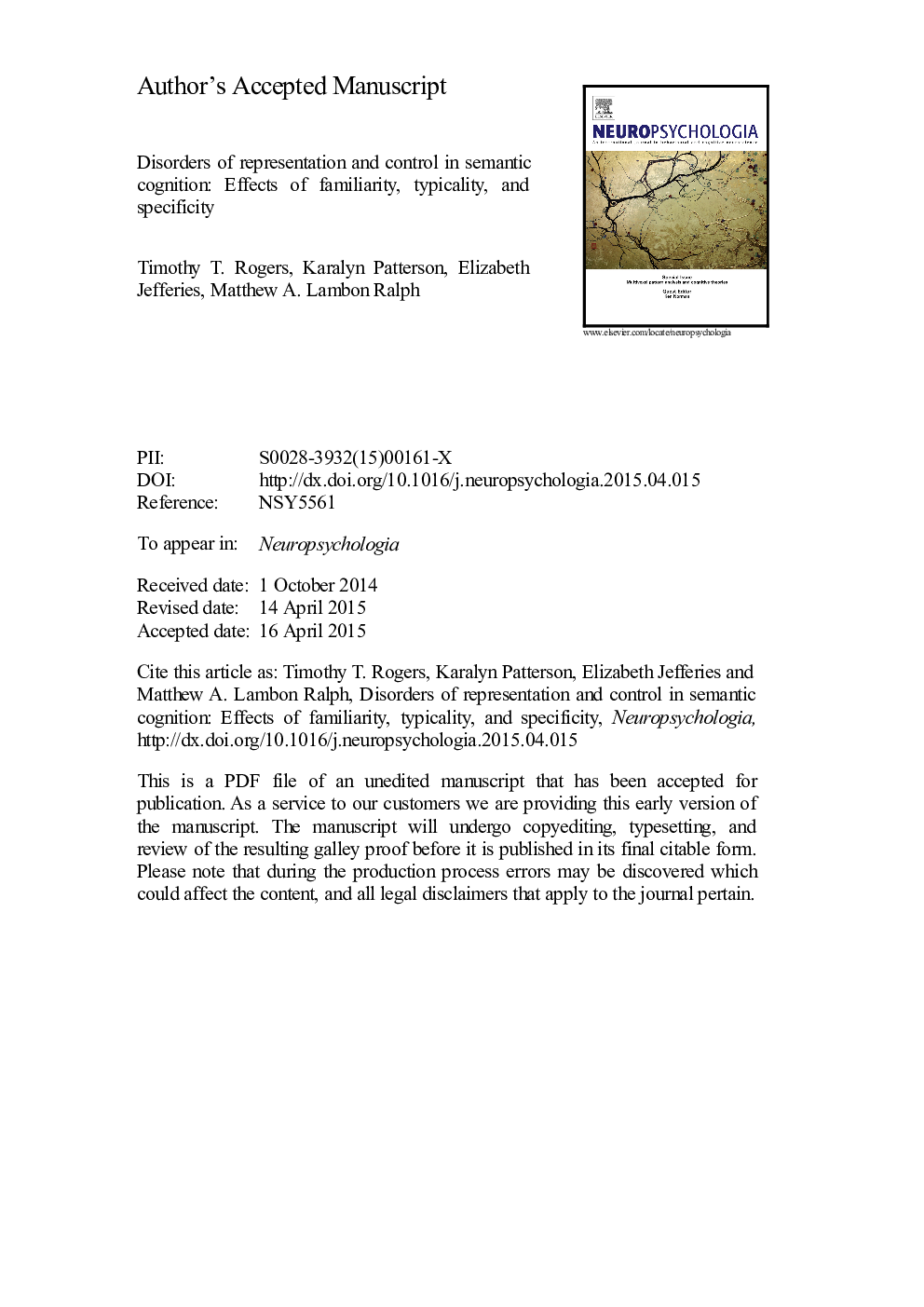| Article ID | Journal | Published Year | Pages | File Type |
|---|---|---|---|---|
| 7319776 | Neuropsychologia | 2015 | 53 Pages |
Abstract
We present a case-series comparison of patients with cross-modal semantic impairments consequent on either (a) bilateral anterior temporal lobe atrophy in semantic dementia (SD) or (b) left-hemisphere fronto-parietal and/or posterior temporal stroke in semantic aphasia (SA). Both groups were assessed on a new test battery designed to measure how performance is influenced by concept familiarity, typicality and specificity. In line with previous findings, performance in SD was strongly modulated by all of these factors, with better performance for more familiar items (regardless of typicality), for more typical items (regardless of familiarity) and for tasks that did not require very specific classification, consistent with the gradual degradation of conceptual knowledge in SD. The SA group showed significant impairments on all tasks but their sensitivity to familiarity, typicality and specificity was more variable and governed by task-specific effects of these factors on controlled semantic processing. The results are discussed with reference to theories about the complementary roles of representation and manipulation of semantic knowledge.
Related Topics
Life Sciences
Neuroscience
Behavioral Neuroscience
Authors
Timothy T. Rogers, Karalyn Patterson, Elizabeth Jefferies, Matthew A. Lambon Ralph,
